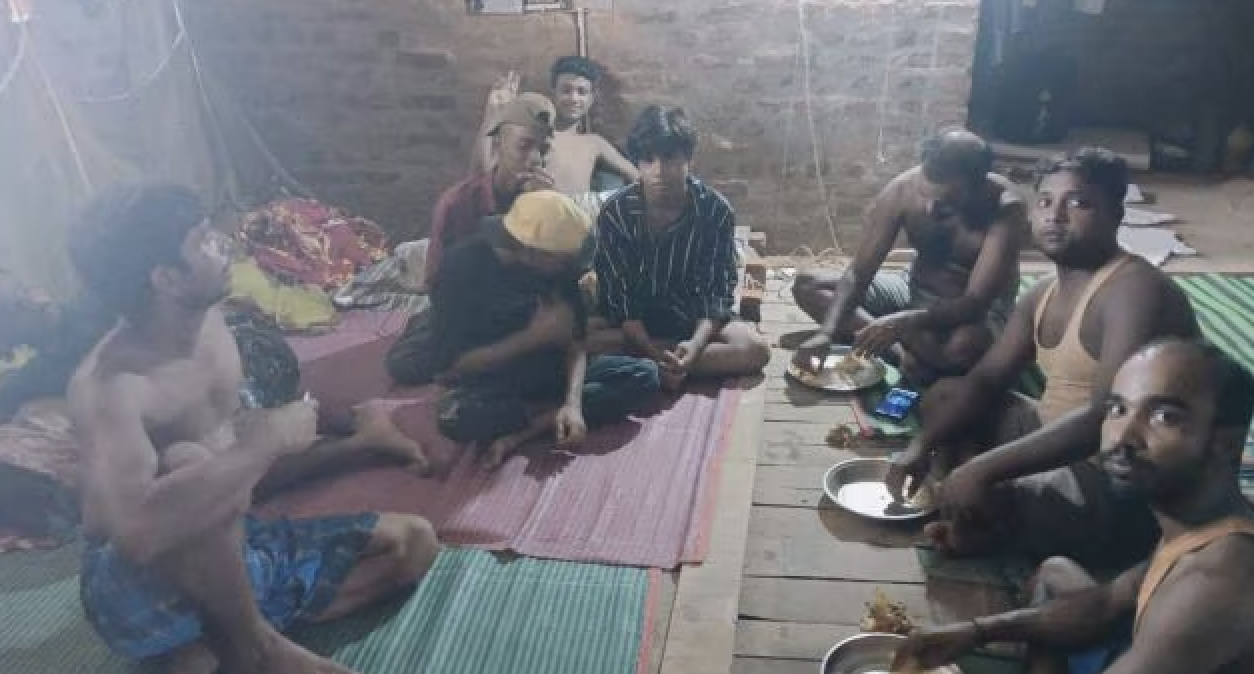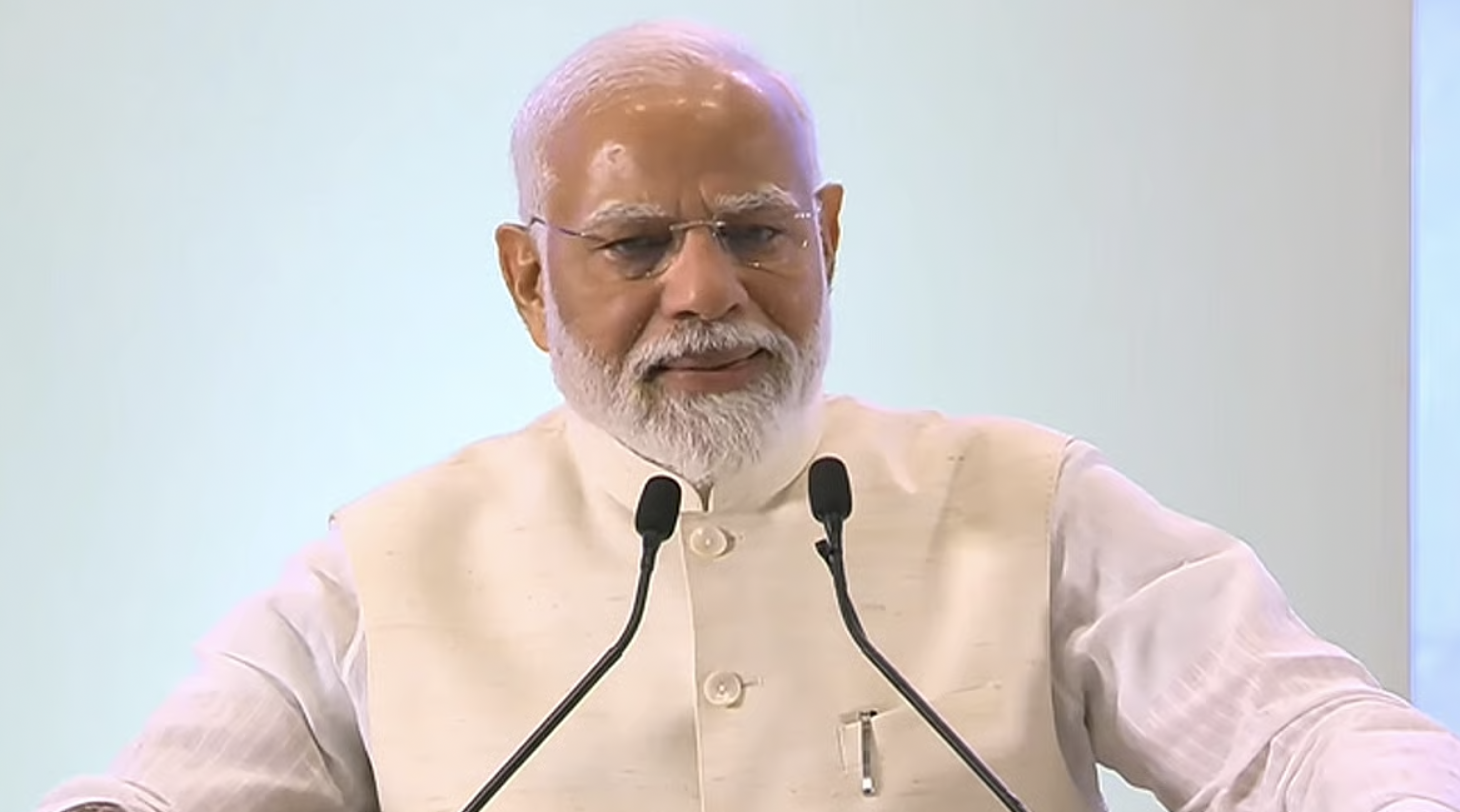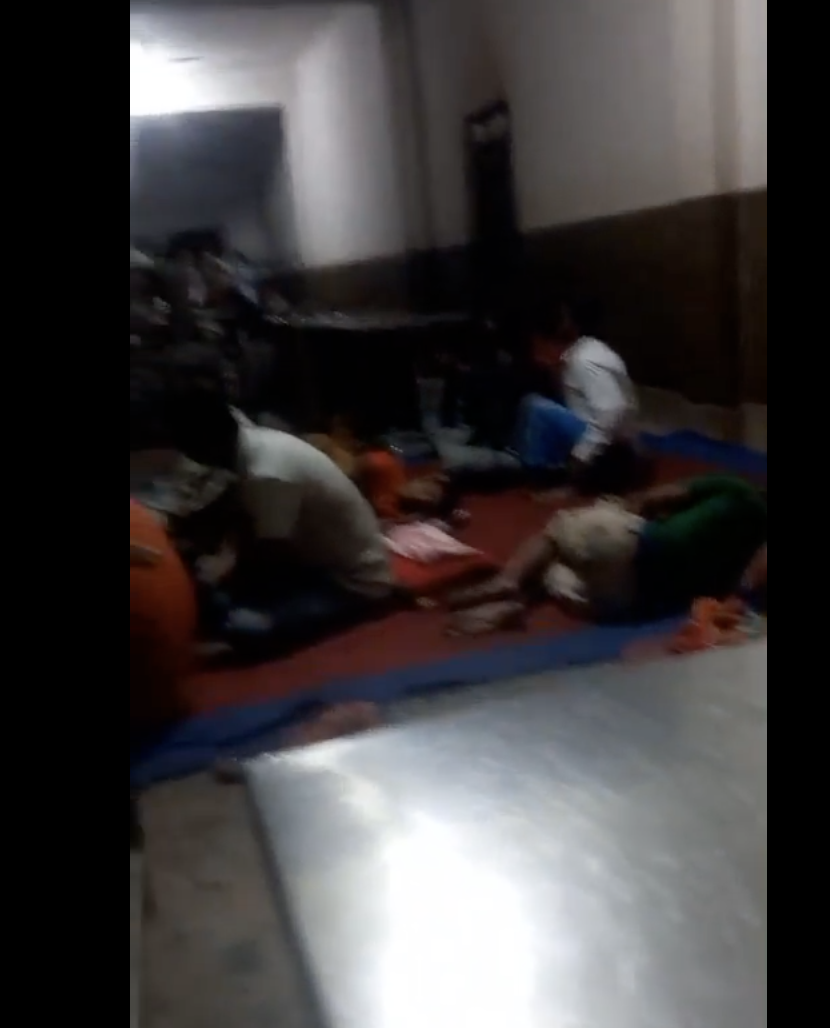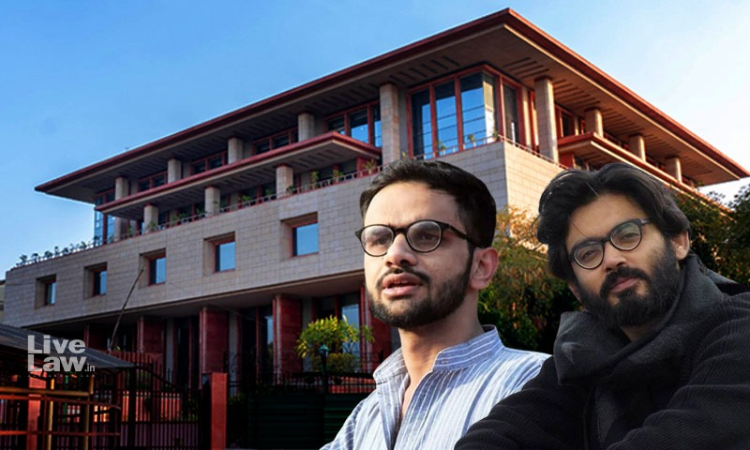
If democracy is the name of our body politic, freedom is its oxygen. Its most precious resource, without which only the dirge remains to be sung. At a time when the case of Pinjra Tod activist Natasha Narwal and her now-deceased scientist-father Mahavir Narwal is all over the headlines, there’s another unfolding story—of equally dire colours—that has been less than visible. This is the case of Delhi-based Malayali journalist Siddique Kappan.
If oxygen scarcity has become a metaphor for our narrowed freedoms in times of the pandemic, Kappan’s story is one where both lines intersect: Covid-19 and the Constitution. An extraordinary story where even the Supreme Court’s intercession seems not to have had the effect of managing to bring basic constitutional guarantees to an Indian citizen. For, just days after an apex court order that Kappan is ensured due medical care in a Delhi hospital, the journalist finds himself thrown back into the darkness of a cell in Mathura.
The basic facts first. Kappan was imprisoned on October 5 last year in Mathura—for the mere fact of trying to go to Hathras to report on the infamous caste atrocity in the western UP town that had made headlines all over. Remarkably, he was charged under UAPA and the sedition law, besides other IPC sections.
Not a sound was heard from the New Delhi media for six months. Barring a five-day interim bail to meet his 90-year-old mother Khadeeja, Kappan endured prison for six months. Mathura district jail is a festering sore—by the official count itself, it packs in 1,700 prisoners against a capacity of 554. With Uttar Pradesh reeling under the pandemic’s second wave, it was like a laboratory for ghastly experiments.
The dreaded news came in late April for Kappan: he had contracted Covid. This was potentially life-threatening, for Kappan—now around 35—has been a chronic diabetic for some ten years, and carries the additional complications of high BP and cholesterol. But what followed was a bizarre story of concealment, evasion, misinformation and, ultimately, a series of acts that defied every possible tenet of humanity and law.
On April 23, his family, along with the Kerala Union of Working Journalists and the Siddique Kappan Solidarity Forum, held a press meeting. Issuing an appeal to the Kerala government to “do something to protect his life”, his wife Reyhanath gave out some sordid details. “When he got fever, he informed me that there were around 50 prisoners who had tested Covid-positive. A few days later, he started having diarrhoea and vomiting. His health was deteriorating,” she said.
And even before Covid, he was practically starving: he was “unable to have solid food and was surviving just on cucumber and curd”. The prison food had caused stomach ailments because of his compromised constitution, and he was unable to ensure diabetic care, even as he moved into Ramzan fasting in mid-April. Also, there was a chin injury that he sustained after ‘collapsing’ in jail. At least that was the word from the prison authorities: medical reports suggested “a hit by a blunt object”. Tracing the sequence of events from available information, he was shifted to the prison hospital after that fall—which is where he tested positive, and continued having difficulty eating—and finally to KM Medical College Hospital in Mathura on April 21. But that was no reprieve. Worse was to follow.
A Chained Patient
Reyhanath was in the dark about Kappan’s condition after his hospital admission: no word came from anyone. When he spoke to his wife next, Kappan told her that he had been kept handcuffed to the hospital cot for four days and was not being allowed to use the toilet—he was given a bottle to urinate in. “How is a Covid patient supposed to survive like this? How can one endure this?” Reyhanath asks in anger, while speaking to this reporter. “What medical care can a person tied to the cot receive? How depressing it must be for him!”
A desperate Kappan had told Reyhanath then to “get me discharged from here somehow”. No surprise, for this was worse than jail. “In jail, Siddique could use the toilet. In hospital, he was not allowed to move,” says his lawyer Wills Mathews. “If a patient is tied up like that, how demoralising is that?”
The KMMC Hospital’s Covid ward in-charge Anil Kumar denied any knowledge about Kappan being handcuffed to the cot since he was not making ward visits. “I believe in the doctors’ reports, according to which the patient is perfectly alright with stable BP and pulse rate,” he told this reporter. As for the prison authorities, they washed their hands of the whole matter. On April 25, the Mathura district jail superintendent P.D. Saloniya told this reporter that as soon as Kappan tested positive, he was admitted to KMMC and he knew nothing about his health after that.
There was an additional twist at this point. At the hospital, they declared him Covid-negative and discharged him and packed him off back to Mathura jail. The UP government was to later produce a medical report in court that included a discharge slip dated April 27. This report records the complaints at the time of admission in vague terms, as follows: “Coughing, difficulty in breathing, fever, chin injury.” Would a Covid-positive diabetic patient admitted with breathing difficulty on April 21 heal so soon that he could be discharged in less than a week?
His family raised questions about how genuine the medical report was, but the answer was obvious. In a state where official attitudes are blasé about even the common citizenry, who has time to think about a chronically vulnerable prisoner in a hopelessly overcrowded jail? Even if his crime is not exactly clear? But this wasn’t exactly neglect: Kappan was clearly being singled out for special treatment.
Supreme Intervention
This was the next act in this sordid drama, the stage where the medical report was furnished, the same court where previous pleas on Kappan’s case had dragged on for half a year, with no relief in sight. This time, however, events took a different turn. Significantly, N.V. Ramana had replaced S.A. Bobde as the Chief Justice just prior to this, on April 24, days before the family now approached the Supreme Court again. After a hearing on the family’s plea that Kappan be ensured better healthcare in custody, the SC ordered on April 28 that he be shifted to a hospital in Delhi—overriding the UP government’s affidavit that Kappan had tested negative for Covid. On April 30, Kappan was finally shifted to AIIMS, New Delhi. Justice seemed to have prevailed, a modicum of order restored.
Appearances were deceptive, though. Merely a week later, in the wee hours of May 6-7, Kappan was spirited away back to Mathura district jail. Inexplicably, they had managed a discharge for him from AIIMS. Reyhanath came to know of this through a source who also let on that Kappan was still Covid-positive (he had tested positive for a second time while at AIIMS, only four days prior to this). This was later confirmed by AIIMS in response to a query from Ponnani MP E.T. Mohammed Basheer. But when his wife and elder son had tried to meet him at AIIMS, he was not in the Covid ward. What then was the treatment he was accorded? Under what circumstances was he discharged and allowed to be taken back to Mathura jail, against the orders of the Supreme Court?
This reporter spoke to Mathura jail superintendent Saloniya again on May 7 morning. He said Kappan was being kept under observation at the jail hospital and that prison authorities were waiting for the doctor’s report on his health. This was contradicted by Kappan when he called Reyhanath around noon, when he said he was being kept in a cell with no toilet. He also said that he never received proper treatment for his medical conditions at AIIMS, including for the injury sustained in jail. The only difference now, after the case started making media headlines and a contempt of court notice was sent, was that he was receiving proper food and basic care, Reyhanath reported.
“Tell us about the facts”
The Supreme Court timeline actually stretches back into 2020. Pleas filed on behalf of Kappan had been pending for six months. The KUWJ had filed a habeas corpus on October 6 itself. And there was also a bail plea that cited his ill health. In multiple interviews this reporter had with Reyhanath, she expressed anxiety about the nature of proceedings. Hearings were postponed frequently. A hearing in the habeas corpus petition listed for November 30 was first postponed to December 2, and then to December 11 after the UP government’s counsel sought time to respond.
As those court hearings made clear, the only thing the authorities had against Kappan was a presumed proximity to the Popular Front of India, a Muslim organisation that elicits strong responses for its often extreme views but very much a legal entity whose political front, the SDPI, contested 41 seats in the recent Kerala elections. Asked about this presumed link, Reyhanath says: “My husband has no political affiliation. But his arrest has politics.” Seeking to put a taint by proxy on Kappan also ignores his nine years in journalism: he quit computer engineering to pursue writing, and worked with at least four Malayalam newspapers and a few online web portals, including Azhimukham.com. Besides covering the Supreme Court and writing literary reviews, he has reported on Dalit and Muslim issues in rural and urban north India, on policy issues and the repression of dissent. Curiously, it was during those dilatory hearings relating to Kappan’s case that the bail petition of Arnab Goswami was heard urgently at midnight—without the question of ‘extreme views’ hampering it.
Simultaneous to those postponements, the Enforcement Directorate was conducting raids at the houses of a few PFI leaders, including PFI national chairman O.M.A. Salam’s house in Manjeri, Malappuram. The ED team told the family that they were given a warrant by home minister Amit Shah. The raids couldn’t seize anything. Soon, Rauf Shareef, a chartered accountant by profession and general secretary of the Campus Front of India, a students’ outfit affiliated to PFI, was arrested on charges of money-laundering. Lodged in Mathura jail, Rauf too has been tested Covid- positive.
During the Kappan hearings, Solicitor-General Tushar Mehta opposed his bail by citing posters seeking Kappan’s release that referred to him as a ‘freedom fighter’ and ‘martyr’. Kappan has nothing to do with journalism, he said; the UP police had indeed accused him of using an old press ID, of Thejas newspaper which has been shut down. But an associate recalls the police intimidation Kappan faced while reporting the Bhim Army’s protest against the Hathras gangrape in Delhi. Siddique could get off only after showing a valid ID card, so the question of a fake ID card could not have arisen.
When Kappan’s lawyer invoked Article 19 and Article 21 to argue for bail, the then CJI said: “Move away from the Constitution, tell us the facts.” Even during the April 28 hearing, S-G Mehta continued his diatribe against the journalist. Why should he get special treatment when hundreds others were being treated at the Mathura hospital, he asked. “Why should an accused person who associated with a banned organisation get preferential treatment over honest taxpayers?” he asked. The S-G tagged him to Thejas (now shut down because of lack of government ads), accusing it of being a PFI mouthpiece run by members of SIMI, a banned organisation. The bench asked the S-G whether PFI was a banned organisation, to which he said a few states had banned it and the Centre was considering a nation-wide ban. Mehta then mentioned alleged cash transactions to Kappan’s bank account. When Kappan informed the court that his income was a mere Rs 25,000, the S-G replied: “All footsoldiers of an extremist organisation may not get high monetary consideration. The fact is that he is in touch with ex-SIMI people who get crores in foreign funding.”
So guilt is presumed by association, and UAPA and sedition brought in. The bias in the system was put out in the open in an astonishing manner during a panel discussion on Reporter TV on April 25, when Reyhanath was told by right-wing panelist Rahul Easwar that she should appoint a savarna advocate for Kappan if she wants him released. “The politics put forward by your husband is that of the marginalised Muslim-Dalit- oppressed coalition, and he tried to make it communal. That won’t work here. The bureaucracy and deep state are run by our people. It will never allow such politics. Abdul Nasar Madani is in jail because he tried to do this.” In police custody following his arrest, Kappan was asked, “Why should a Muslim feel compassion in the case of a Dalit girl?”
Kappan is partly entangled in what UP Police claims is a wider conspiracy to create “communal trouble” with protests over Hathras—protests that it says was funded by PFI—and to establish “Islamic State rule in the nation”. No evidence is forthcoming for such grand claims, of course. But the day Rauf was to be released on bail in the ED case, he was transferred to the custody of UP STF—linking him to the case relating to the “alleged triggering of communal violence in Hathras”, in which Campus Front activists had been held in October. Meanwhile, they had expressed their views on being accused in the case to the Allahabad High Court, citing how certain media houses reported the case. “When I heard about the arrest of Rauf, I could see where Siddique’s case was moving,” Reyhanath had told this reporter in March. “I feel all this was done to make people forget the actual Hathras gangrape.” What better tactic than to evoke the threat of ‘terrorism’, even with no iota of evidence?
How does that happen? Because, the law permits it. “The UAPA is an anti-terror law with an extremely wide definition of a ‘terrorist act’, giving arbitrary powers to the State to arrest anyone and hold them for long periods of custody based on unsubstantiated allegations of terror,” says People’s Union of Democratic Rights secretary and advocate Radhika Chitkara, who says the law should go in its entirety. “In Kappan’s case, we see that a journalist who was just doing his job has now spent six months in jail on allegations of ‘raising funds for terrorist activities and engaging in conspiracy’. The UAPA came in handy for the UP government to chill speech and coverage of its handling of the Hathras gangrape. Under ordinary law, a prisoner suffering from such a serious health condition would be entitled to bail to receive treatment. But since Kappan has been arrested under UAPA, he is being subject to custodial torture and inhuman treatment purely by virtue of being a political prisoner and a Muslim.”
This story first appeared on outlookindia.com






